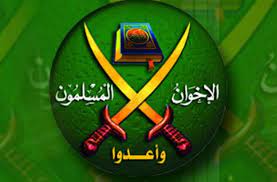Jordan is in turmoil following last week’s news that its security forces thwarted the smuggling of weapons from Iran to a terrorist cell of the “Muslim Brotherhood” movement in Jordan, linked to the military wing of Hamas.
According to Jordanian sources, the five members of this cell are of Palestinian origin and were recruited for the mission by Saleh al-Arouri, the head of Hamas’s military wing in Judea and Samaria, before he was eliminated by Israel in Beirut in January this year.
Jordanian officials stated that Jordan has recently thwarted several attempts by Iran to smuggle various types of weapons into Jordan, including Katyusha rockets, Kalashnikov rifles, “Kalimagor”-type explosive charges, and other explosives.
Some of these weapons were intended to be smuggled into the territories of Judea and Samaria for armed terrorist groups in Jenin, Nablus, and Tulkarm, while the rest were for terrorist operatives in Jordan itself to carry out attacks from the Jordanian border into Israeli territory.
The tensions between the “Muslim Brotherhood” movement and the Jordanian royal house are severe as street demonstrations in support of Hamas and the Gaza Strip continue, impacting the upcoming parliamentary elections expected this September.
The “Muslim Brotherhood” movement, the parent organization of Hamas, is currently leading the demonstrations in Jordan that threaten the stability of King Abdullah’s rule.
The movement is greatly embarrassed by the revelation of the arms smuggling affair and the intention to establish a secret Islamic underground in Jordan by its members.
The “Muslim Brotherhood” is now waiting to see the indictments that will be submitted against the members of the terrorist cell to the Military Court for State Security.
The movement’s leaders must decide whether to engage in an open confrontation with King Abdullah or to limit their actions to quiet demonstrations.
The Jordanian royal house is pressuring the “Muslim Brotherhood” movement to disassociate itself from supporting Hamas in the Gaza Strip.
It fears a similar phenomenon to the “Arab Spring” that could topple the king’s rule.
However, the movement is resisting these pressures to avoid losing its supporters on the Jordanian street, especially in preparation for the parliamentary elections in September.
The Hamas movement was surprised by the public disclosure by the Jordanian authorities of the terror cell founded by Saleh al-Arouri in Jordan, which consists of members of the “Muslim Brotherhood.” Hamas issued a brief and unconvincing response, stating that “the movement only believes in activity in the occupied territories against Israel.”
Iran, the “Muslim Brotherhood” movement, and Hamas are now referring to the war in the Gaza Strip as “the flood of the free” instead of the “al-Aqsa flood” to encourage the Jordanian street to rise up against the royal house.
The Sunni “Muslim Brotherhood” movement is cooperating with Shiite Iran, which aims to take over the West Bank and the eastern part of Jordan to attack Israel from there and provoke security chaos in the West Bank to overthrow PA Chairman Mahmoud Abbas’s government.
King Abdullah has effective intelligence mechanisms that uncovered the new terrorist infrastructure established in Jordan by the “Muslim Brotherhood” and Hamas.
However, he must find a way to neutralize the Jordanian street’s sympathy for the “Muslim Brotherhood” and support for Hamas.
Otherwise, this new Iranian phenomenon will pose a serious threat to him and his rule.




